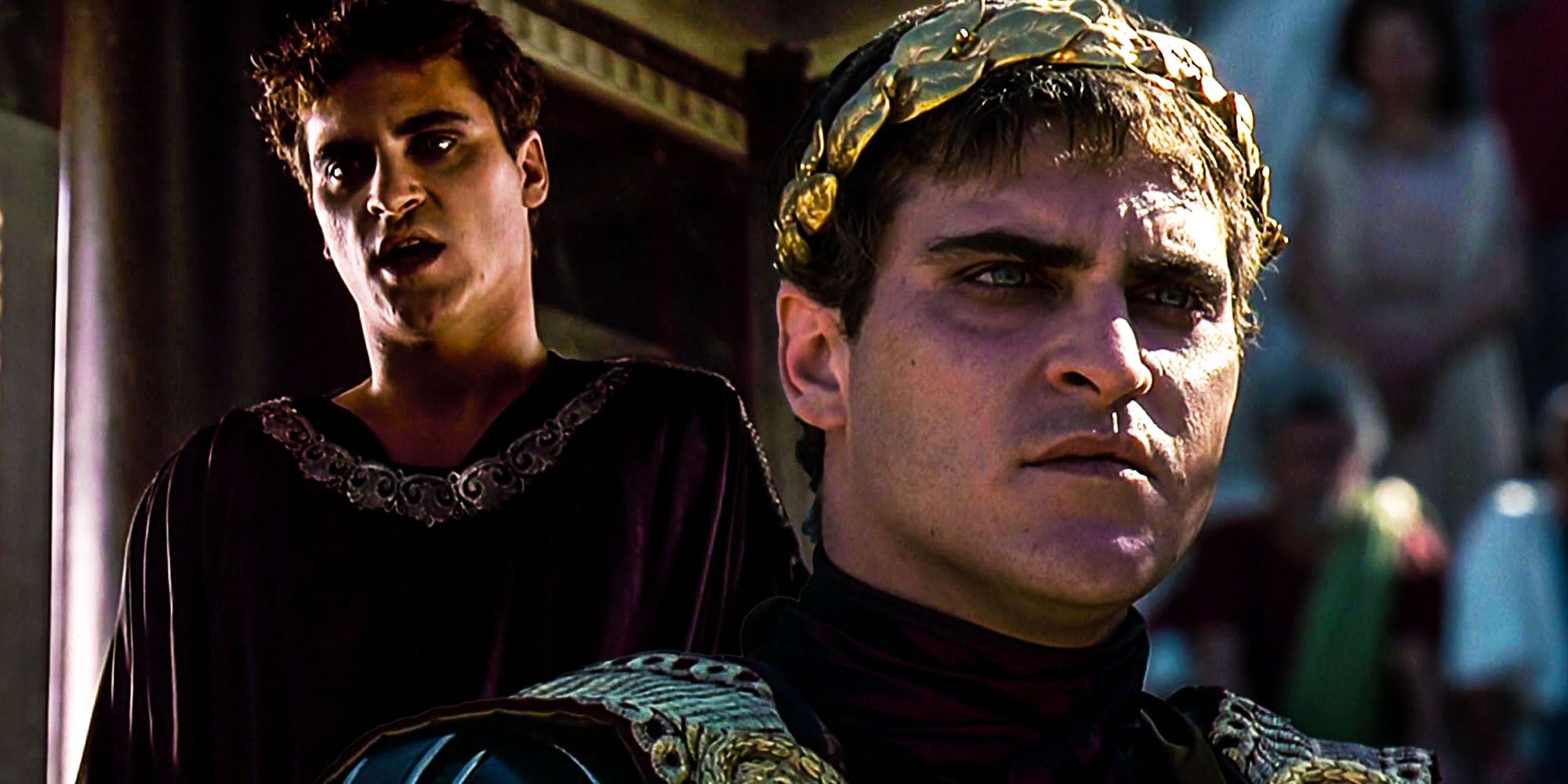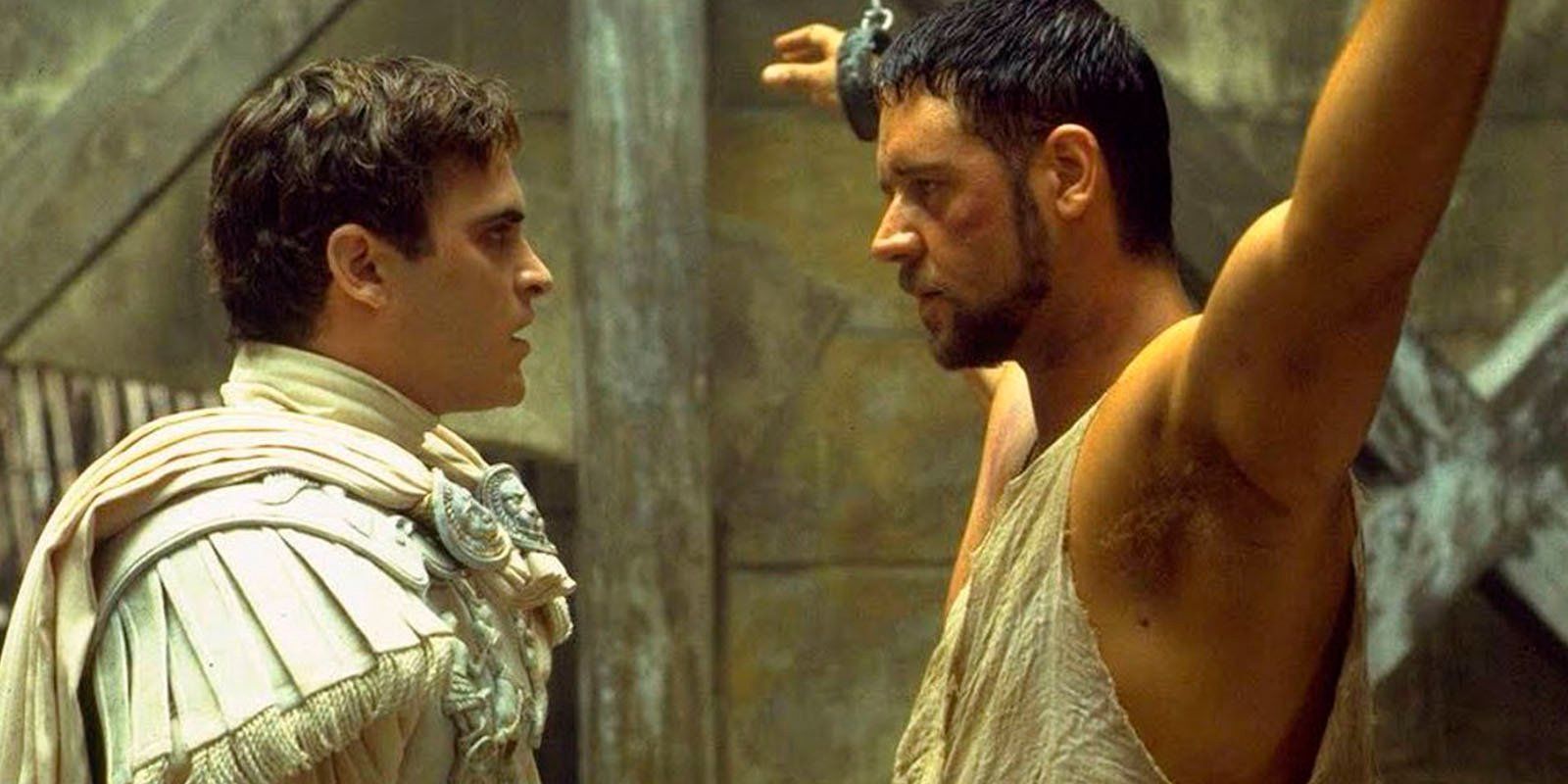Maximus’ defeat of Commodus provides a dramatic conclusion to Gladiator, but the depiction of the malevolent emperor’s death is historically inaccurate. The scene portrays the extent of Emperor Commodus’ malice and provides a realization of the vengeance sought by Maximus, following the crucifixion of his wife and child. Gladiator's Commodus death, therefore, is a pertinent conclusion to Maximus’ storyline in Gladiator, but it consequentially abstracts the film's historical basis.
The 2000 film, directed by Ridley Scott, is steeped in the culture of ancient Rome. Gladiator is clearly influenced by aspects of history, but its specific storyline is definitively imaginative. Commodus, who is portrayed by Joaquin Phoenix, was indeed the son of Marcus Aurelius (Richard Harris) and an emperor of Rome. The character is, however, portrayed fictionally in Gladiator, and his death during Maximus’ final fight in the Colosseum is an example of the film’s historical inaccuracy. In the contest, Maximus is a victim of foul play as Commodus preemptively wounds him, then later produces a blade. Despite the unfair circumstances, Maximus is victorious, killing Commodus with the very blade the emperor had concealed.
Contrary to the plot of Gladiator – where Emperor Commodus is portrayed as having killed Marcus Aurelius – the two ruled together, from 177 until the latter’s death in 180. Commodus is commonly regarded as being an inadequate and megalomaniacal emperor, but Gladiator’s distortion of history portrays him as exclusively and resolutely evil. Gladiator is somewhat historically accurate in its final scenes, as Commodus did perform as a gladiator. His death, however, was the result of an assassination plot in 192, culminating with Narcissus killing him in the bath. It is the type of death indicative of Commodus’ notoriety as an emperor, which is fundamental to Gladiator’s plot, but the film is imaginative in its depiction of his death to provide closure to Maximus.
Gladiator Changed Commodus' Death
Despite Maximus being a fictional character, the athlete Narcissus is one of the multiple historical figures serving as the likely inspiration for Gladiator's protagonist. Sporting critical wounds after enacting his vengeance at the end of Gladiator, Maximus dies moments after Commodus. While the film’s fictional account maintains that the killing of Commodus was motivated by the nature of the emperor’s actions, it is more personal and emotionally charged in the film than in history.
What Else Gladiator Changed About Commodus
Aside from the manner of his death in Gladiator, Commodus' onscreen depiction has a few other historical reworkings that help add spice to the plot, although some changes serve to tone down the character. One of these is Commodus' relationship with his sister Lucilla. While Lucilla did actually try to orchestrate Commodus' assassination, there's no historical evidence of his disturbing attraction to her or their highly tempestuous relationship as depicted in the movie. On the other hand, the real Emperor Commodus was even more outlandish than Gladiator's version in some ways, as he renamed Rome "the Colony of Commodus" at one point. Joaquin Phoenix's character is bad news, but he doesn't quite have the same unhinged level of megalomania as his real-life counterpart.
Gladiator is a film invested in the concept of retribution. The film portrays a fictionalized account of historical events, and it illuminates aspects of the culture of ancient Rome. Commodus's death is an example of how the film has historical references but often distorts them to create its narrative – Gladiator's Commodus being less power-hungry than his historical counterpart refocuses the movie around Maximus' personal struggle rather than the wider Roman political landscape. Commodus’ reign is commonly regarded as the beginning of the Roman Empire’s decline, and he is a natural choice for the primary antagonist of Gladiator. His death in history marks the end of the Nerva-Antonine dynasty; in the movie, his death marks the retributive end of Maximus’ Gladiator story. The latter is what has made the movie timeless.



